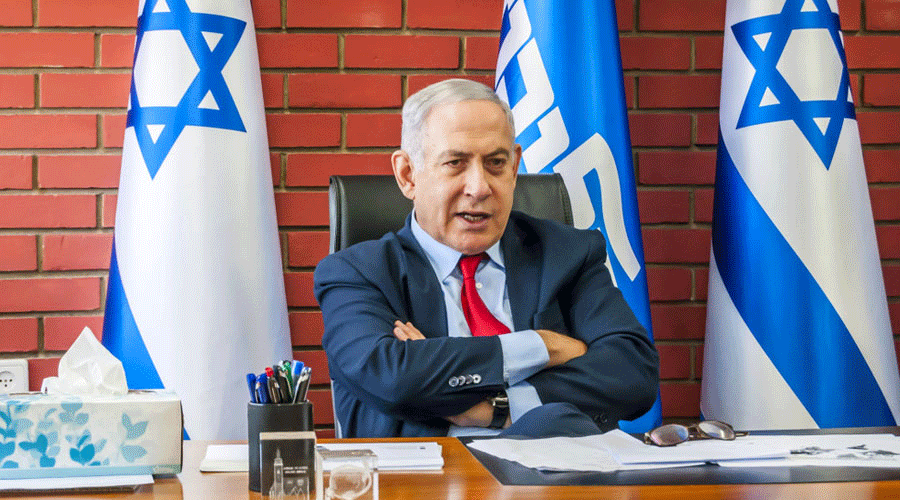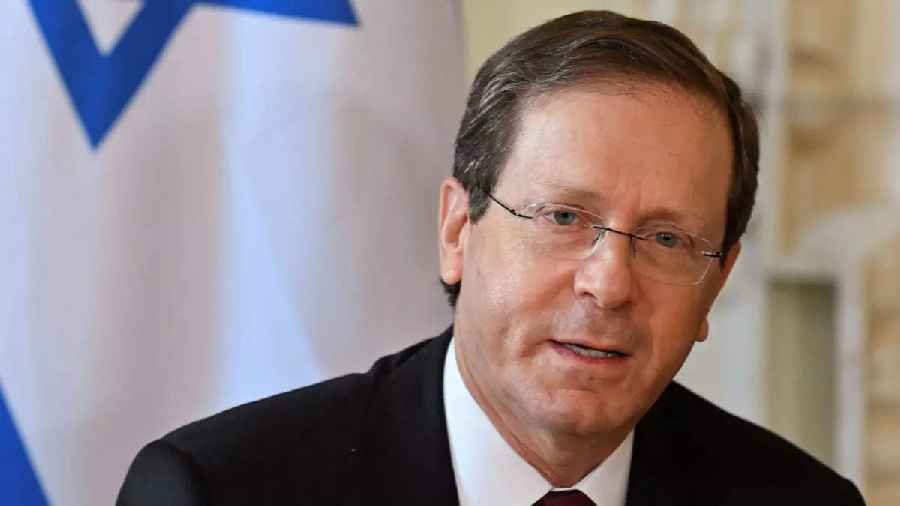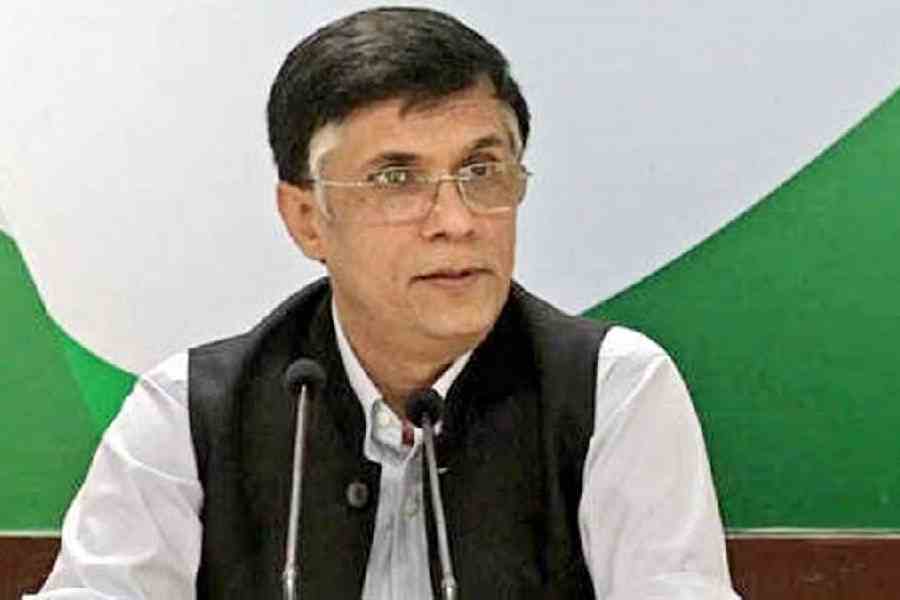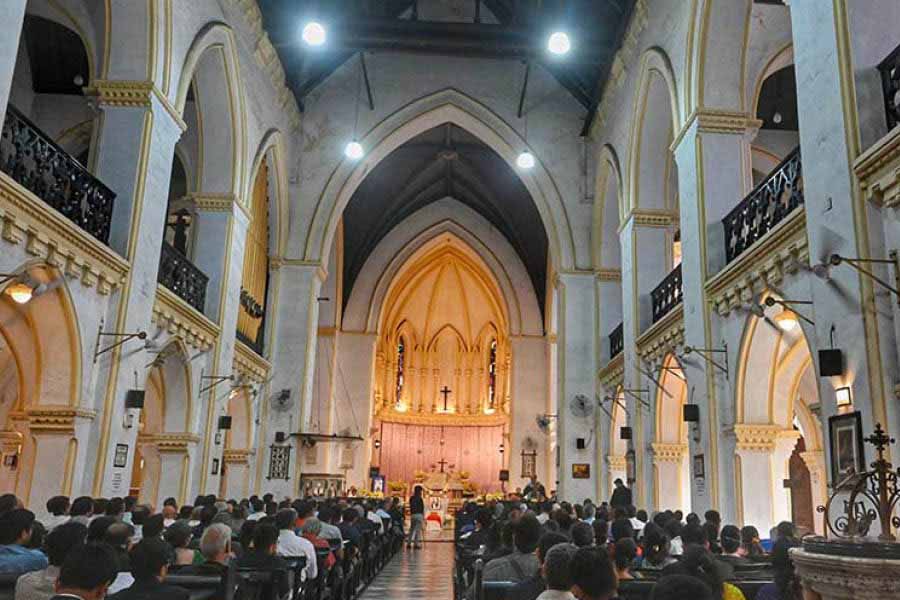Benjamin Netanyahu on Sunday promised to be the "prime minister for everyone" after Israeli President Isaac Herzog officially invited the country's longest-serving premier to form the new government.
Netanyahu, who has won the backing of 64 Members of the Knesset (Israeli Parliament), has been assigned the task to form the next government, a statement from the Presidency said, days after the November 1 election, the fifth in four years, to break the political impasse that had paralysed the Jewish nation.
"I decided to bestow upon you, MK Benjamin Netanyahu, the mandate to form a government," President Herzog told Netanyahu during a meeting at the president's residence.
Israel's longest-serving leader, 73-year-old Netanyahu has won a record five elections to hold office five times - more than any other prime minister in the country's 74-year history.
Netanyahu will have 28 days to form the government. If an extension is required, the President has the legal authority to grant an extension of up to fourteen additional days.
His return to power could see an upward trajectory in Indo-Israel strategic ties.
An advocate of strong bilateral ties with India, Netanyahu was the second Israeli Prime Minister to visit India in January 2018. Prime Minister Narendra Modi made his historic visit to Israel, the first by an Indian Prime Minister, in July 2017 when the chemistry' between the two leaders became the subject of intense discussion.
President Herzog said he was "not unaware" of Netanyahu's ongoing corruption trial, but that the court had ruled in the past that this was not a barrier to awarding Netanyahu the mandate.
"Israel requires a government that even if its composition does not reflect all worldviews and sections of the legislature, nevertheless knows to lead a process of connection and unification - between all parts of our people - and to conduct a responsible, cautious, open, frank, and attentive dialogue with the other branches of government," Herzog said.
President Herzog had on Friday announced that he will ask Netanyahu to form a new government following consultations with leaders of all the political parties that have been elected to the 25th Knesset in the November 1 elections.
The Israeli President started discussions with leaders of the political parties immediately after formally receiving the results of the polls from the Chairman of the Central Elections Committee last Wednesday.
After receiving the mandate to form the new government and the sixth under his leadership, Netanyahu said that he will be a prime minister for "all of Israel's citizens, without exception."
"There are many, many who welcome the election results but there are also those who make outrageous prophecies and frighten the public. This is not the first time such things have been said. They said it about [Likud's first leader Menachem] Begin, they said it about me too; it wasn't true then and it's not true today either," Netanyahu said.
"I intend to be a prime minister for everyone for those who elected me, and for those who did not elect me. It reflects what I believe in and what guides my actions," he added.
Netanyahu thanked all 64 members of the Knesset who recommended him and said he will form "a stable and successful government."
Besides Netanyahu's Likud party, he has received the backing of the right-wing bloc including, Shas, United Torah Judaism, Religious Zionism, Jewish Power and Noam.
Netanyahu's ruling Likud party won 32 seats in the Knesset while outgoing Prime Minister Yair Lapid's Yesh Atid got 24 seats.
The biggest surprise of the polls after the final count was over is the far-right Religious Zionism party which won 14 seats becoming the third largest party.
Netanyahu's other likely coalition partners, Shas and United Torah Judaism won 11 and seven seats, respectively bringing the bloc's total count to 64 in the 120-member parliament, enough for a governing majority.
Defence Minister Benny Gantz's National Unity won 12 seats, and Finance Minister Avigdor Lieberman got six seats, one more following the counting of the double-envelope votes. The so-called double-envelope ballots are cast by members of the security forces, prisoners, people with disabilities, diplomats serving abroad.
Arab-majority parties Hadash-Ta'al and United Arab List each got five seats but the breakaway Balad party failed to cross the threshold of 3.25 per cent required for a Knesset entry.
Labour, once a ruling party in Israel, got just over the 3.25 per cent electoral threshold winning four seats.
The Left-wing party, Meretz, was just a few thousand votes short of making it into the next Knesset, ending a three-decade-long era of political representation for it since its formulation in 1992.
The outcome of the election, the fifth in less than four years, ended an unprecedented period of political deadlock that began in 2019, when Netanyahu was charged with bribery, fraud and breach of trust, which he denies.












